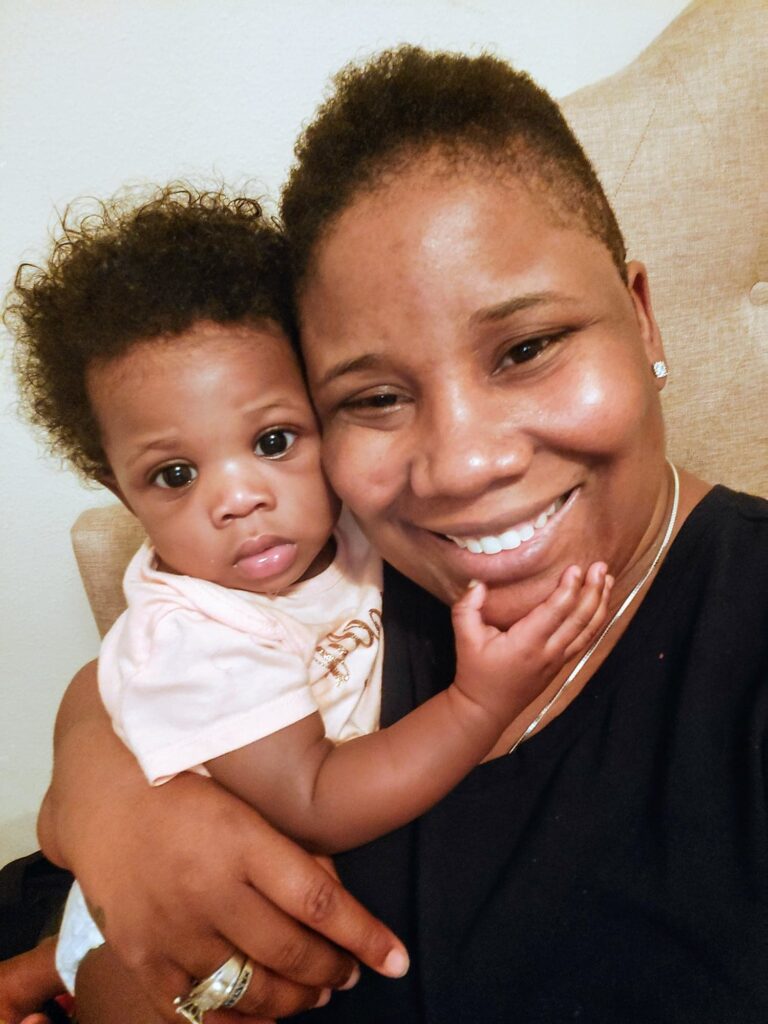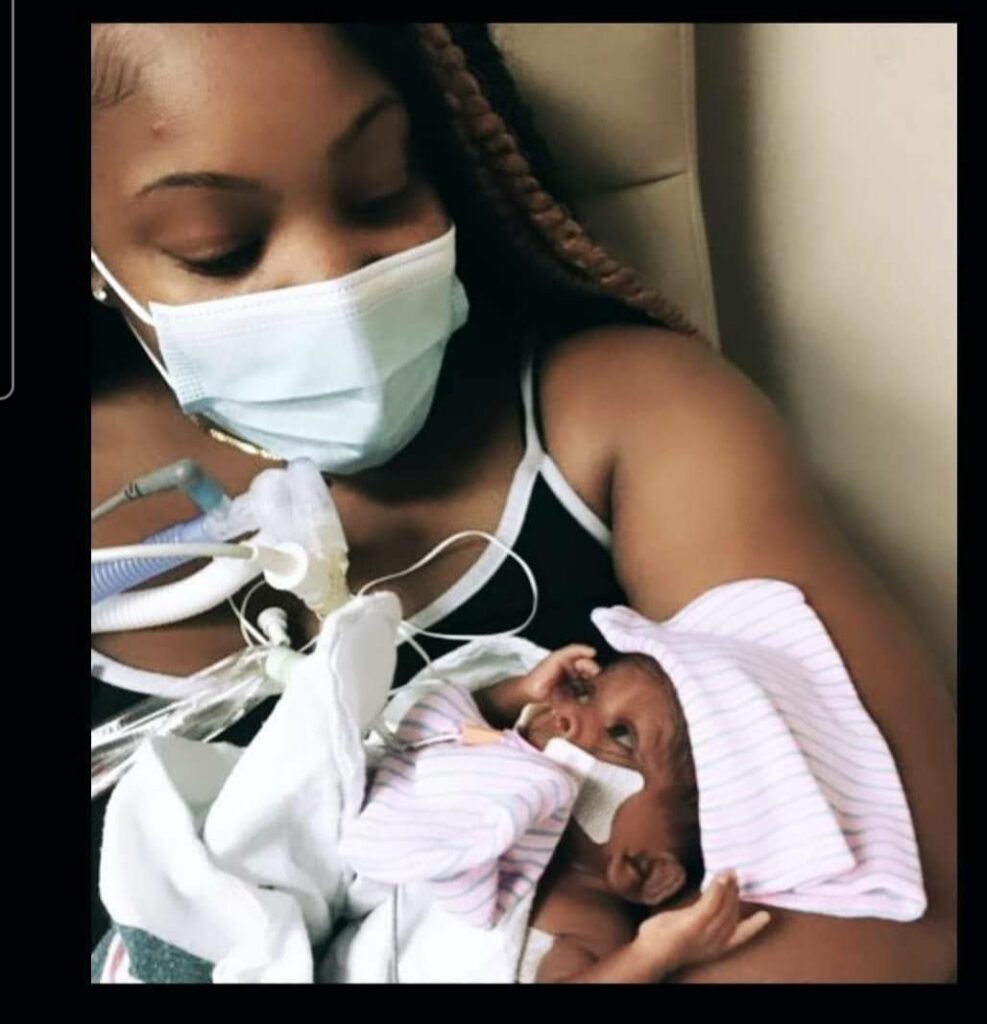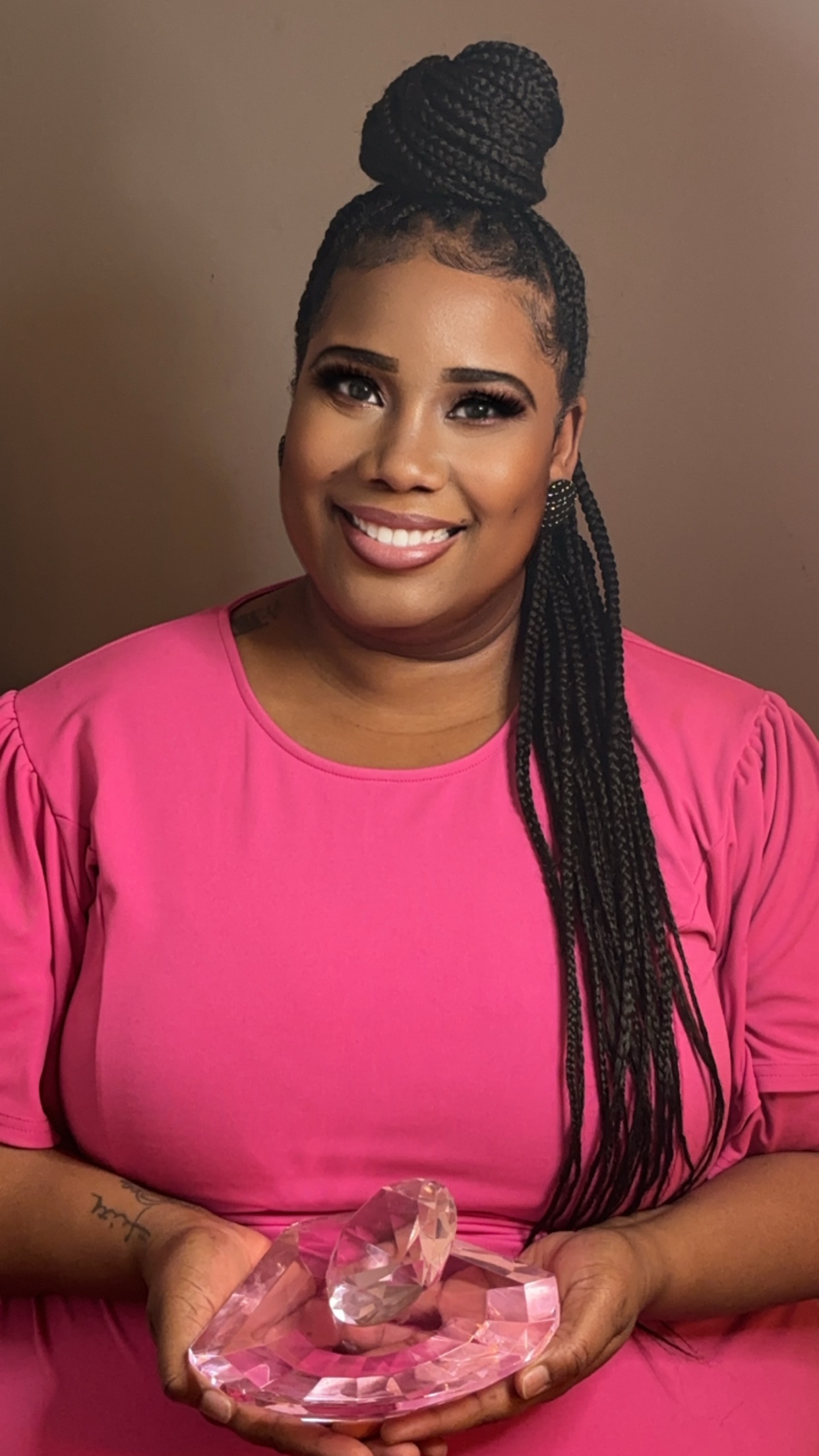Two Stories of Pregnancy, Complications, and a Pandemic
Written by: T.J. Brinkley | When a family is expecting a baby, it is sure to be the most exciting time. And for the expecting mother, she worries about having a healthy child, the actual gender of the baby, the name of the baby, shopping for the new addition, and so much more. One of the things on her list is not “what should we do if we have a world emergency?” Now let me pause for a second, although giving birth can be scary, every mother wants a safe and healthy delivery. I can not say this enough; most pregnant mothers with spouses or partners expect to have them involved in the delivery process.And just like every expecting mother, I was elated to have my surprise baby girl join the family. Although her conception was not planned, my family and I were excited and ready to meet our little SweetPea.

Oh, but it gets even scarier for our family. I go to the doctor for what I think will be a normal visit that turned into being sent straight to the hospital because I had developed Cholestasis (a liver disease) and we needed to deliver immediately. It took us to another level because we feared the unknown. I never even heard of this condition. It seemed like everything was happening so fast. Don’t get me wrong, we were in the third trimester, and ready to have our baby, but never imagined it would be like this. Finally, I arrived at the hospital, and I am told “your husband can come”. I felt a sigh of relief and safety.
When little SweetPea was delivered, we did not get an opportunity to hold her or cut her cord. The nurse yelled out her birth weight while they continued to work on her. We knew something wasn’t right because they wheeled her away to the Neonatal Intensive Care Unit (NICU). In the meantime, I was losing a lot of blood from having a fourth caesarean section. Covid-19 limited the hands-on help available inside the operating room and in the NICU – it was chaos.
Then Coronavirus aka Covid-19 hit the world, and suddenly we were and still are living in a real-life pandemic. Honestly, no one plans for a pandemic and certainly not an expecting mother. So, here I am being told that my husband cannot attend much of anything. He cannot join me for my prenatal check-ups, and maybe not even join me in the hospital during birth. Imagine my shock and disappointment to know I could be giving birth without my husband by my side.
We both went home on the third day, but my nightmare was just about to start. I got home and couldn’t breathe without feeling light-headed. I went back to the hospital where I had just delivered my baby three days earlier. I walked into the emergency room, and said that I just had a baby via c-section three days ago. I feelt light-headed and was having trouble breathing. I was instantly taken back to the Covid-19 Unit. I was told that they needed to run a test to make sure I wasn’t positive. The first doctor told me that she thought I had pneumonia, but “let’s get some labs done”. They moved me into the Covid-19 floor and placed me in a nice room. My thoughts at that moment were, “these people got me in a better room than what I was in when I had my baby.” I was scared to go to sleep because honestly, this whole covid situation didn’t add up to me. I had no fever, no chills, no symptoms after the first day. My doctor finally arrived and told everyone my tests were negative, and they are to discharge me immediately. Covid stole my family’s excitement and made it a very scary experience.
Written by Tonnesha Edmond | On March 11, 2020, my significant other, Barrett and I, learned that we would be expecting a child. Although the coronavirus had been detected in Atlanta a few weeks prior, at this time there were no shelter-in-place mandates. We missed the “Quarantine-N-Chill” experience just by a few days.Around week 20 of my pregnancy, in July 2020, I was diagnosed with high blood pressure as well as fetal growth restriction. My unborn son was measuring about three weeks smaller than my gestational age at the time. As a result, my OBGYN referred me to a fetal specialist to be evaluated. Because we were still facing a pandemic, at most medical facilities visitors were not allowed to accompany the patients. Not to mention I was fat (or pleasantly plump), couldn’t breathe, and had to wear a mask throughout the entirety of each visit (sigh).

During my first appointment with the fetal specialist, an ultrasound was performed that revealed several issues. My placenta was dysfunctional and failing to provide adequate nutrients and oxygen to the baby. In addition, I also had a fibroid on my uterus that was also taking up space in the womb. I was also experiencing proteinuria (the presence of abnormally high quantities of protein in the urine), and diagnosed with pre-eclampsia. Pre-eclampsia is a pregnancy complication characterized by high blood pressure and signs of damage to another organ system, most often the liver and kidneys.
Due to these high-risk concerns, the fetal specialist gave me two options and advised that I would need to make a decision quickly. The first option was to have my baby early, however because he was only about 300 grams and I was only 23 weeks pregnant, he would have no chance of survival. The second option was to remain pregnant for as long as possible, however my son could die in the womb at any given moment which would lead to a stillbirth.
Talk about lost, scared, uncertain, alone and stuck!
Naturally, I’m a very inquisitive person. Some may call it “nosey,” but I call it “curious.” You can bet your last dollar that I asked the fetal specialist a million and one questions, and then I probably turned around and re-asked the same questions. To my surprise, even after getting valuable insight on everything I was facing, there was still no one, right, or clear decision.
At one point, I started to believe there was no point in finding a name for him. I mean, after all, the doctors are extremely knowledgeable and if they said the likelihood of him surviving was low, they must be right, right? Why should I get my hopes up only to be let down?
After carefully weighing our options, Barrett and I decided that I would remain pregnant as long as possible and remain steadfast in our faith. We decided to put our trust in God, the one who can defy science. Eventually, my conditions worsened. On Aug. 19, 2020, I was admitted to the hospital and prescribed bed rest and continuous monitoring. After a long 2-week stay, on Aug. 27, 2020, and at exactly 26 weeks pregnant, I gave birth to our miracle baby boy, Casimir Dru Green (pronounced “Caz-uh-meer”) He was born weighing less than one pound at 430 grams (15 oz.). He was literally smaller than my hand!
As of today, Casimir has been in the NICU for more than 120 days. He currently weighs over 6 lbs. He has experienced and overcome so much throughout this journey. His respiratory needs have decreased recently and he is currently receiving non-invasive ventilation (NIV). Prior to NIV, he was on an oscillator, ventilator, back to the oscillator, then back to the ventilator. Sounds like a rollercoaster, right? He has also recently overcome pneumonia.
Baby Cas continues to show us that he is a soldier and absolutely nothing can stop him. He is the embodiment of perseverance. It truly has been quite a journey and Covid-19 has definitely made things a little more challenging. The one thing that has remained consistent throughout this journey is God’s love and peace. He has given me a solid foundation to stand on when everything else seems so fickle. My family and I refuse to give up hope and we trust and believe that Baby Cas will come home soon.
